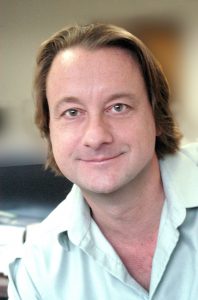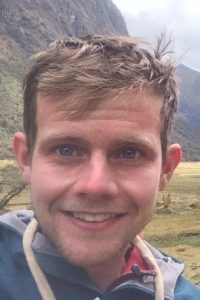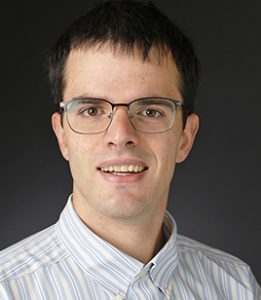Planet Formation Initiative
The TAP Planet Formation Initiative undertakes the study of theories of the formation and evolution of the Solar System and exoplanet systems
Star and Planet Formation Theory Group
The Star and Planet Formation Theory group studies the origin and early evolution of stars, planets, and the disk out of which they form. Using analytic and computational techniques, we tackle astrophysical puzzles across 20 orders of magnitude in scale, encompassing everything from the physics of dust growth in protoplanetary disks to the collapse of magnetized, turbulent molecular clouds. Email Profs. Kaitlin Kratter or Andrew Youdin to join the mailing list for group meetings
Planet Formation Lab
The Planet Formation Lab in the Lunar and Planetary Laboratory studies theories of the formation and evolution of the Solar System and exoplanet systems with an emphasis on the origin of geologic bodies including asteroids, comets, satellites, and terrestrial planets. The work is in part laboratory/exploration-based, focusing on discovered and measured physical properties of planetary bodies and meteorites, and in part computations-based, simulating the physics of regimes where laboratories cannot easily go, such as giant impacts in 3D. It is from such collisions that the terrestrial planets were born, and from which meteorites derive, so the research connects solar system dynamics with petrogenesis, including the study of planetary bodies and their samples. To join in or lead a group discussion please contact Prof. Erik Asphaug.
TAP Planet Formation Initiative Lecture

COMING APRIL 2025 - Fred Adams, University of Michigan
The Planet Formation Initiative has invited Fred Adams to visit April 20 – 27, 2025. See the vistor schedule to select a meeting time.
Please join us for Dr. Adam’s TAP Lectures. Details below:
Origins Seminar and TAP Planet Formation Initiative Lecture:
Date: April 21, 2025, 1:00-2:00 pm, Location TBA
SO/NSF NOIRLab Joint Colloquium and TAP Planet Formation Initiative Lecture:
Date: April 24, 2025, 3:30-4:30 pm
Refreshments served after the Lecture
BIO:
Born in Redwood City, California, Fred Adams graduated from Iowa State University in 1983 with a BS in Physics and Mathematics. He went on to receive his PhD in Physics from the University of California, Berkeley (in 1988), where his dissertation received the Robert J. Trumpler Award from the Astronomical Society of the Pacific. After serving as a postdoctoral research fellow at the Harvard-Smithsonian Center for Astrophysics, Adams joined the faculty in the Physics Department at the University of Michigan in 1991. Adams was promoted to Associate Professor in 1996, and to Full Professor in 2001. He is the recipient of the Helen B. Warner Prize from the American Astronomical Society and the National Science Foundation Young Investigator Award. At the University of Michigan, he has been awarded the Excellence in Education Award, the Excellence in Research Award, the Faculty Recognition Award, and was elected to the Michigan Society of Fellows. Adams was subsequently elected to be a fellow of the American Physical Society, fellow of the American Astronomical Society, and Chair of the AAS Division on Dynamical Astronomy. He was named as the Ta-You Wu Collegiate Professor of Physics at the University of Michigan, and is currently the director of the Leinweber Center for Theoretical Physics. Professor Adams works in the general area of theoretical astrophysics with a focus on the study of star formation, exoplanets, and cosmology.
He is internationally recognized for his work on the radiative signature of the star formation process, the dynamics of circumstellar disks, the development of a theory for the initial mass function, and studies of extra-solar planetary systems. In cosmology, he has studied the inflationary universe, magnetic monopoles, cosmic rays, and cosmic background radiation fields. His work in cosmology also includes explorations of the long term fate and evolution of the universe, as well as a re-examination of its degree of finetuning.
Previous Lecturers

Nicholas Wogan, NASA Ames Research Center
The Planet Formation Initiative invited Nick Wogan to visit November 4-8, 2024.
Dr. Wogan provided a TAP Planet Formation Initiative Lecture on Nov 4, 2024. (Lecture on YouTube)
Nick provided 2 PhotoChem Workshops:

Kedron Silsbee, University of Texas at El Paso
The Planet Formation Initiative hosted Kedron Silsbee March 11-15, 2024.
Planet Formation Initiative Lecture provided on March 13, 2024. No recording available.
TITLE: Growth, drift and pile-up of planetesimals in binary systems
Join the TAP mailing list to receive future talk updates and announcements.
Image credit: ESA/Hubble & NASA